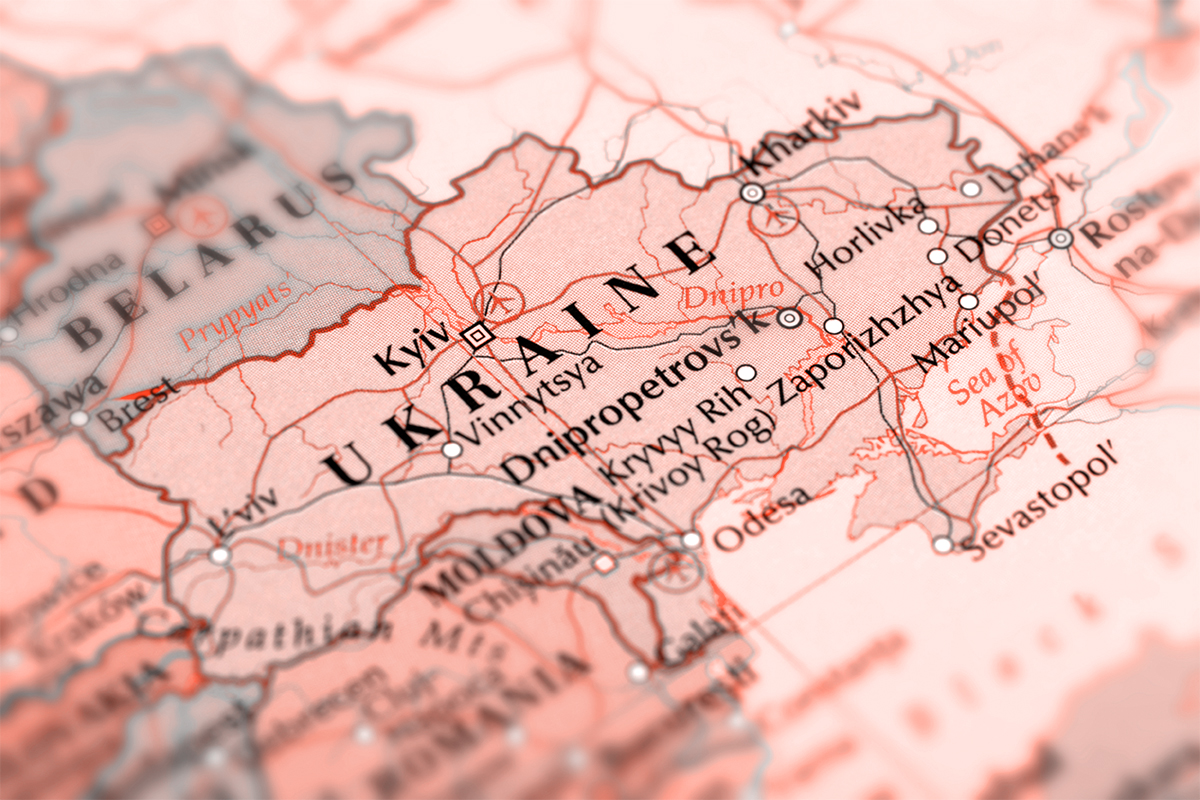Identifying as a Jewish person in Ukraine is certainly an interesting experience. We’re currently the biggest country in Europe where both the newly elected President and Prime Minister are Jews, yet we still face a lot of misconceptions.
The Jewish community in Ukraine has 2000 years of history, making us one of the oldest ethnic groups in the country, even older than Ukrainians themselves. Yet the current population of Jews only numbers to 100,000 (that’s less than .2% of the population).
So what is it actually like being Jewish in Ukraine? Here’s a little primer:
1. We are all different.
First of all, our country is huge — it takes us 36 hours by train to travel from the east border to the west. Just as in other larger countries, like the U.S., there are Jewish communities all across the country that might not communicate with each other that much, who have different political opinions often based on which part of the country we are coming from, and some of us even have different native languages.
2. We understand being Jewish differently.
Our community is not very united — and that’s not necessarily a bad thing. Each of us understands being Jewish in a totally different way. For some, being Jewish is strongly connected to religion, for others having Shabbat dinner once in a few months is enough; for some, being Jewish is getting help from the community, and for others it is helping people in need.
3. We go to Jewish summer camps, too.
If you find a Jew in Ukraine younger than 40, they probably grew up going to Jewish summer camp. We wait all year for the summer to come so that we can go to one, two, or sometimes even three Jewish summer camps in one summer. These camps are both a fun and educational experience — and often the only Jewish experience a lot of us will have.
4. We have Jewish friends.
Most of us didn’t go to Jewish day school or preschool, but we still tend to have Jewish friends. We might have grown up together, met at the aforementioned summer camps, or found each other as adults, but it’s always a relief to be able to share our Jewish identity with them.
5. We have close friends living in Israel.
And we try to pay a visit there every now and then. Lots of young Jews in Ukraine decide to move to Israel for different reasons: Some of them have Zionist views, others are looking for free education or better work opportunities, and some move there to live with loved ones. And those of us who stay in Ukraine love to visit. For a lot of us, it feels like we can navigate Tel Aviv with our eyes closed.
6. That goes for Germany, too.
Germany still offers programs for Jewish people who want to move there. Many of our aunts and uncles went there looking for a better life after the Soviet Union collapsed in 1991 and actually found what they were looking for.
7. The younger generations are the most educated in our families.
Jews were practically not allowed to enter universities in some big Ukrainian cities, like Kyiv, during the time of the Soviet Union. No matter if they got the best results on a written exam — when it came time for a personal interview, Jews didn’t tend to pass. Nowadays all people have an opportunity to get a higher education in Ukraine and that’s how we became much more educated than the previous generations of Jews here.
8. We finally are not afraid to be openly Jewish.
We’re certainly not as afraid to show our Jewish pride as our parents and grandparents were. Anti-Semitism isn’t a huge problem here anymore — and the right wing party in parliament did not even get 5% of the votes. Personally, I think it’s the best time ever for the Jewish community in Ukraine. We are the first generation that can wear a kippah on the street, have a Star of David necklace around our necks, and openly state to anyone that we are Jewish. We feel pretty happy about that.
9. We are as much Ukrainian as we are Jewish.
Those of us who choose to stay here have many opportunities to leave — but we care about our home country. Lots of us took part in the Revolution of Dignity (protests against the government’s decision to geopolitically move to Russia and not the EU), forming a group called Jewish Hundred who fought against the regime. We support the human rights movement, we are working in all kinds of areas from education and culture to the government, and some of us are even fighting for our country in the war that Russia has started against Ukraine.
All of that is our way of being a Ukrainian Jew. Or a Jewish Ukrainian.



